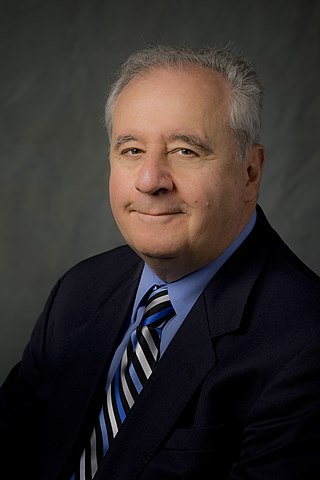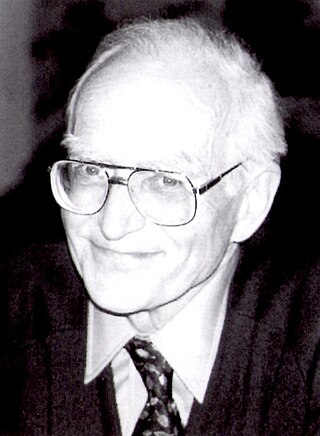A fellow is a concept whose exact meaning depends on context. In learned or professional societies, it refers to a privileged member who is specially elected in recognition of their work and achievements. Within the context of higher educational institutions, a fellow can be a member of a highly ranked group of teachers at a particular college or university or a member of the governing body in some universities; it can also be a specially selected postgraduate student who has been appointed to a post granting a stipend, research facilities and other privileges for a fixed period in order to undertake some advanced study or research, often in return for teaching services. In the context of research and development-intensive large companies or corporations, the title "fellow" is sometimes given to a small number of senior scientists and engineers. In the context of medical education in North America, a fellow is a physician who is undergoing a supervised, sub-specialty medical training (fellowship) after having completed a specialty training program (residency).

International Computers Limited (ICL) was a British computer hardware, computer software and computer services company that operated from 1968 until 2002. It was formed through a merger of International Computers and Tabulators (ICT), English Electric Computers (EEC) and Elliott Automation in 1968. The company's most successful product line was the ICL 2900 Series range of mainframe computers.

Eta Kappa Nu (ΗΚΝ) or IEEE-HKN is the international honor society of the Institute of Electrical and Electronics Engineers (IEEE). Joining HKN is by invitation only. Membership is a lifelong designation for individuals who have distinguished themselves as students or as professionals in electrical engineering, computer engineering, computer science, and other fields of IEEE interest.

The Institution of Engineering and Technology (IET) is a multidisciplinary professional engineering institution. The IET was formed in 2006 from two separate institutions: the Institution of Electrical Engineers (IEE), dating back to 1871, and the Institution of Incorporated Engineers (IIE) dating back to 1884. Its worldwide membership is currently in excess of 158,000 in 153 countries. The IET's main offices are in Savoy Place in London, England, and at Michael Faraday House in Stevenage, England.

Sankar Kumar Pal is a computer scientist and president of the Indian Statistical Institute, Kolkata. He is a computer scientist with an international reputation on pattern recognition, image processing, fuzzy neural network, soft computing, and machine intelligence. He founded the Machine Intelligence Unit in 1993, and the Center for Soft Computing Research: A National Facility in 2004, both at the ISI. He is the founder president of the Indian National Academy of Engineering, Kolkata Chapter.

Jacek M. Zurada serves as a Professor of Electrical and Computer Engineering Department at the University of Louisville, Kentucky. His M.S. and Ph.D degrees are from Politechnika Gdaṅska ranked as #1 among Polish universities of technology. He has held visiting appointments at Swiss Federal Institute of Technology, Zurich, Princeton, Northeastern, Auburn, and at overseas universities in Australia, Chile, China, France, Germany, Hong Kong, Italy, Japan, Poland, Singapore, Spain, and South Africa. He is a Life Fellow of IEEE and a Fellow of International Neural Networks Society and Doctor Honoris Causa of Czestochowa Institute of Technology, Poland.
Sir Peter Leahy Bonfield is a business executive who has led a number of companies in the fields of electronics, computers and communications. Currently a director of several companies in the USA, Europe and the Far East, he was formerly chief executive of ICL and more recently of BT Group. He is a Fellow of the Royal Academy of Engineering, the Institution of Engineering and Technology, the British Computer Society, the Chartered Institute of Marketing, the Marketing Society and the Royal Society of Arts. He is a Liveryman of The Worshipful Company of Information Technologists, Freeman of the City of London, Honorary Citizen of Dallas, Texas and Member of the Pilgrims of Great Britain.

Brian Warboys, was a British Professor of Software Engineering at the University of Manchester from 1985 until he retired in September 2007. He was subsequently appointed as Professor Emeritus and continues to undertake research. Before joining the university he had worked for ICL, then the UK's largest computer manufacturer. During the 1970s he had been the chief designer of ICL's VME operating system. He is also the author of several non-fiction books.
Fellowship of the Royal Academy of Engineering (FREng) is an award and fellowship for engineers who are recognised by the Royal Academy of Engineering as being the best and brightest engineers, inventors and technologists in the UK and from around the world to promote excellence in engineering and to enhance and support engineering research, policy formation, education and entrepreneurship and other activities that advance and enrich engineering in all its forms.

Engineers Australia (EA) is an Australian professional body and not-for-profit organisation whose purpose is to advance the science and practice of engineering for the benefit of the community. Engineers Australia is Australia's recognized organization for accreditation of professional engineering qualifications under the Washington Accord. As of 2022, EA has 115,000 members, which includes 31,000 students.
Gerardo J. Meléndez is a San Juan, Puerto Rico-born scientist who served as Director of the Armaments Research Development Engineering Center (ARDEC) headquartered at Picatinny Arsenal in New Jersey from 2010 until his Civil Service retirement in May 2014.

Dan Mircea Frangopol is an American civil engineer and the inaugural holder of the Fazlur R. Khan Endowed Chair of Structural Engineering and Architecture at Lehigh University, Bethlehem, Pennsylvania.

Wanda M. Austin is a former president and CEO of The Aerospace Corporation. She was both the first woman, and the first African-American, to hold this position. Austin also served as interim president for the University of Southern California, following the resignation of C. L. Max Nikias. She was both the first woman, and the first African-American, to hold this position.

George Eric Felton was a British computer scientist. He undertook pioneering work in the field of operating systems and programming software and is the father of the GEORGE Operating System. He held the world record for the computation of π.

Demetri Terzopoulos is a Greek-Canadian-American computer scientist and entrepreneur. He is currently a Distinguished Professor and Chancellor's Professor of Computer Science in the Henry Samueli School of Engineering and Applied Science at the University of California, Los Angeles, where he directs the UCLA Computer Graphics & Vision Laboratory.
Mark F. Horstemeyer is the Dean of the School of Engineering at Liberty University. He was the Giles Distinguished Professor at Mississippi State University (MSU) and professor in the Mechanical Engineering Department at Mississippi State University (2002–2018), holding a Chair position for the Center for Advanced Vehicular Systems (CAVS) in Computational Solid Mechanics; he was also the Chief Technical Officer for CAVS. Before coming to MSU, he worked for Sandia National Laboratories for fifteen years (1987-2002) in the area of multiscale modeling for design.

Raouf Boutaba is an Algerian Canadian computer scientist. His research interests are in resource, network and service management in wired and wireless networked systems. His work focuses on network virtualization, network softwarization, cloud computing, and network security.

Xin Zhang is a Distinguished Professor of Engineering at Boston University (BU).

Seah Moon Ming is a Singaporean corporate executive who has contributed to several key engineering companies in Singapore, and is currently the Chairman of SMRT Corporation Ltd, SMRT Trains Ltd, SMRT TEL Pte Ltd and SMRT Buses Ltd. He is appointed as the Chairman of the National University Singapore (NUS) High School of Mathematics and Science’s Board of Governors in October 2021. In 2022, he was awarded the Meritorious Service Medal at the National Day Awards. He was conferred the IES Lifetime Engineering Award by the Institution of Engineers Singapore (IES) in recognition of his positive influence and achievements to the engineering community in January 2023.
Krishnendu Chakrabarty is an Indian-American electrical and computer engineer. He is the Fulton Professor of Microelectronics at Arizona State University Ira A. Fulton Schools of Engineering. Before joining Arizona State, he was the John Cocke Distinguished Professor and was the Chair of the Department of Electrical and Computer Engineering at Duke University Pratt School of Engineering.













